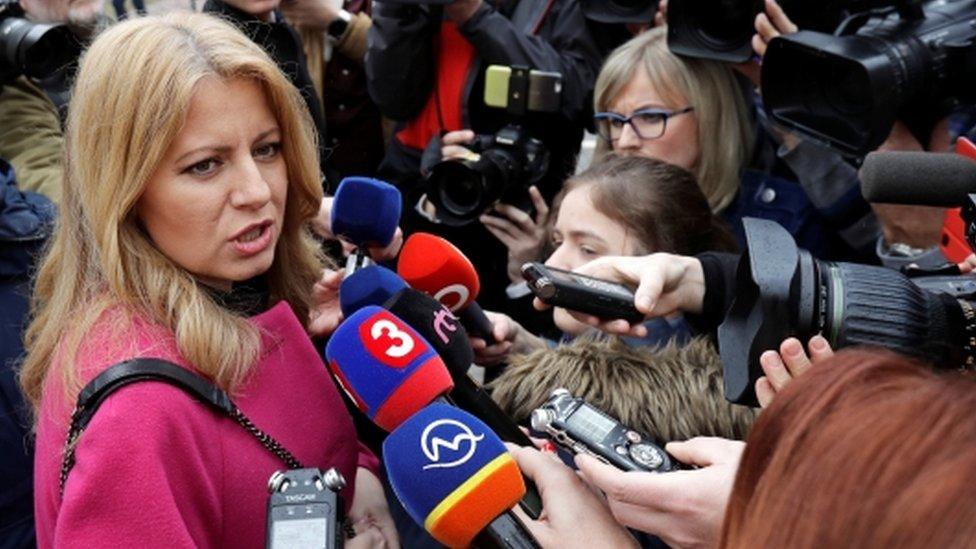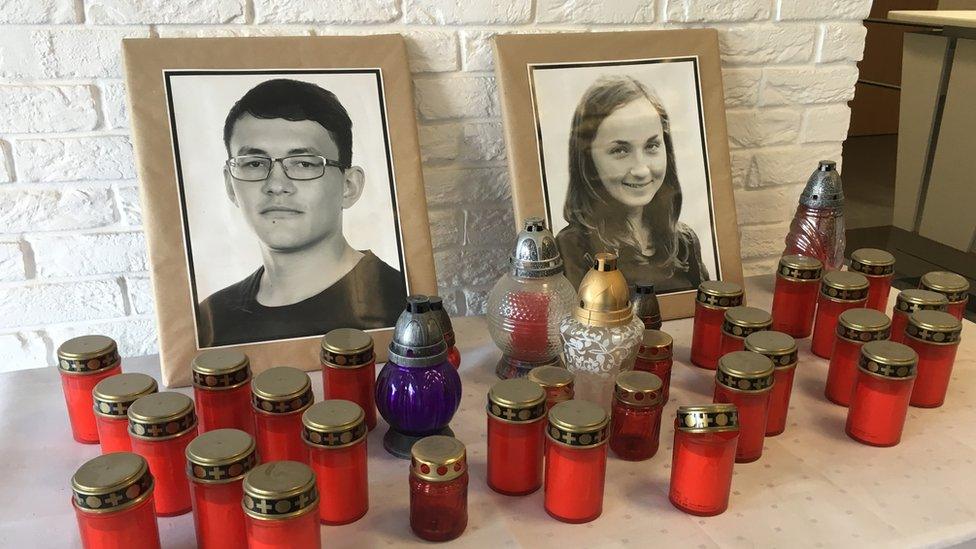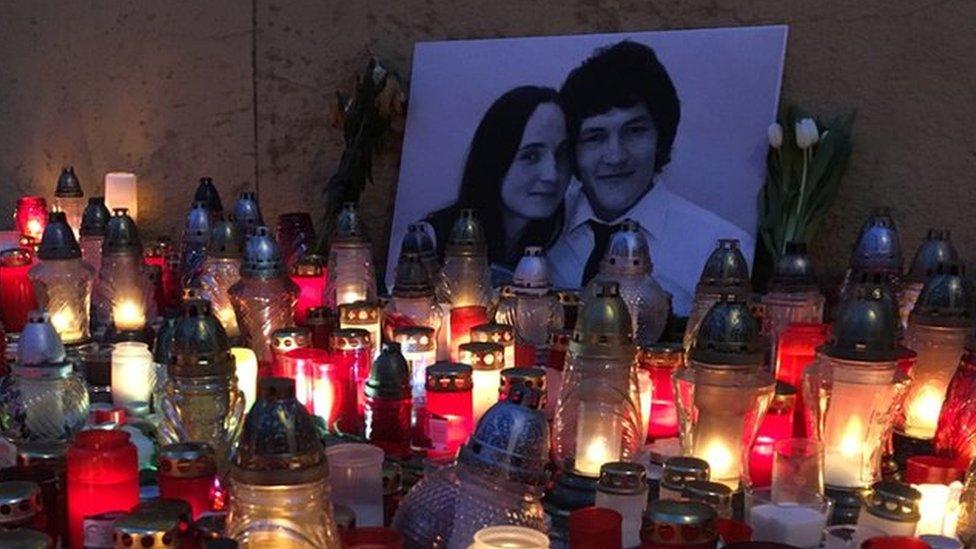Slovakia election: Liberal Caputova bucks Europe's populist trend
- Published

The divorced mother-of-two is noted for her liberal views and her campaigning against corruption
"The only thing necessary for the triumph of evil is for good men to do nothing," read a recent post on Zuzana Caputova's Facebook page, as she appealed to Slovakia's 4.4 million registered voters to back her in this weekend's presidential race.
This political newcomer and front-runner has framed the contest as a battle between good and evil - and if she wins she will become the country's first female president.
That famous quote might sound overblown for a largely ceremonial position with almost no executive power.
But one year after the murder of investigative journalist Jan Kuciak, a killing that led to the fall of Slovakia's pugnacious Prime Minister Robert Fico, the election is being seen as a litmus test of how far Slovak society has changed.
I rely on traditional Christian values, such as compassion and love for our neighbours and for people who belong to a minority. I would consider it positive if this country united"

"If Caputova wins on Saturday, which is very likely, it could start a far-reaching political and generational change in Slovak politics after the long rule of Fico's populist Smer party," said analyst Milan Nic, a senior fellow at the German Council on Foreign Relations (DGAP) in Berlin.
"Victory for Caputova would present a different face of Central and Eastern Europe, showing there's an alternative to illiberal forces and centralised political control developed in Hungary and Poland.
"The Caputova scenario would also mean big encouragement for the opposition in Poland, which is trying to combine forces against the ruling Law and Justice party in the European parliament elections in May."
Why rival has struggled against new face of politics
Zuzana Caputova might have two decades of experience as a lawyer and anti-corruption campaigner, but her experience of government or diplomacy is dwarfed by that of her challenger Maros Sefcovic.
Formerly head of Slovakia's mission to the European Union, he is now one of the six vice-presidents of the European Commission.


But his presidential bid has been hampered by his association with Robert Fico and the Smer party that nominated him (although he is not a party member).
Regularly at pains to distance himself from the former prime minister, Mr Sefcovic is still tarnished with the brush of a discredited political establishment.
The 52-year-old diplomat is a graduate of the elite Moscow State Institute of International Relations, and applied to join the Communist Party of Czechoslovakia in May 1989 - six months before the fall of the regime.
In terms of perceptions, he is truly the political "old" to Zuzana Caputova's "new".

Maros Sefcovic is well behind his rival in the opinion polls
"She is credible, independent from the establishment, and represents positive change. In a way she's shaping up to be the Slovak Macron," explained Milan Nic.
"Electing a divorced single mother and civic activist from outside the political establishment as head of state would be a huge turning point, not just for Slovakia, but for the broader region as well," he went on.
Caputova and a changing Slovakia
Certainly the 45-year-old divorced mother-of-two is seen as closer to "ordinary" voters than the men in suits who have dominated Slovak politics, even though her liberal views on such issues as LGBT rights are likely to alienate her from some voters in this conservative and largely Catholic country.

Protests took place last month in towns and cities across Slovakia to remember Jan Kuciak and his fiancée
But perhaps the decisive factor in these elections will be the disgust and anger still felt at Kuciak's murder - an act that Zuzana Caputova says prompted her to enter politics.
There is even a connection with the man who Slovak prosecutors believe ordered the killing, Marian Kocner. During her 14-year legal battle over an illegal landfill site in her home town of Pezinok, she crossed swords with Mr Kocner, who was representing the firm trying to expand the site.
A wealthy businessman with connections to many Slovak politicians including Robert Fico, Mr Kocner is now in custody awaiting trial for murder.
"If she wins, it will be proof that the majority of people in Slovakia care about their country and are fed up with the corrupt and criminal system of Mr Fico," said Matus Kostolny, editor-in-chief of the liberal daily Dennik N.
"Ten years ago, a liberal woman [Prime Minister Iveta Radicova] was not able to persuade enough people of her policies. But Slovakia has changed."
- Published28 February 2018

- Published17 March 2019
